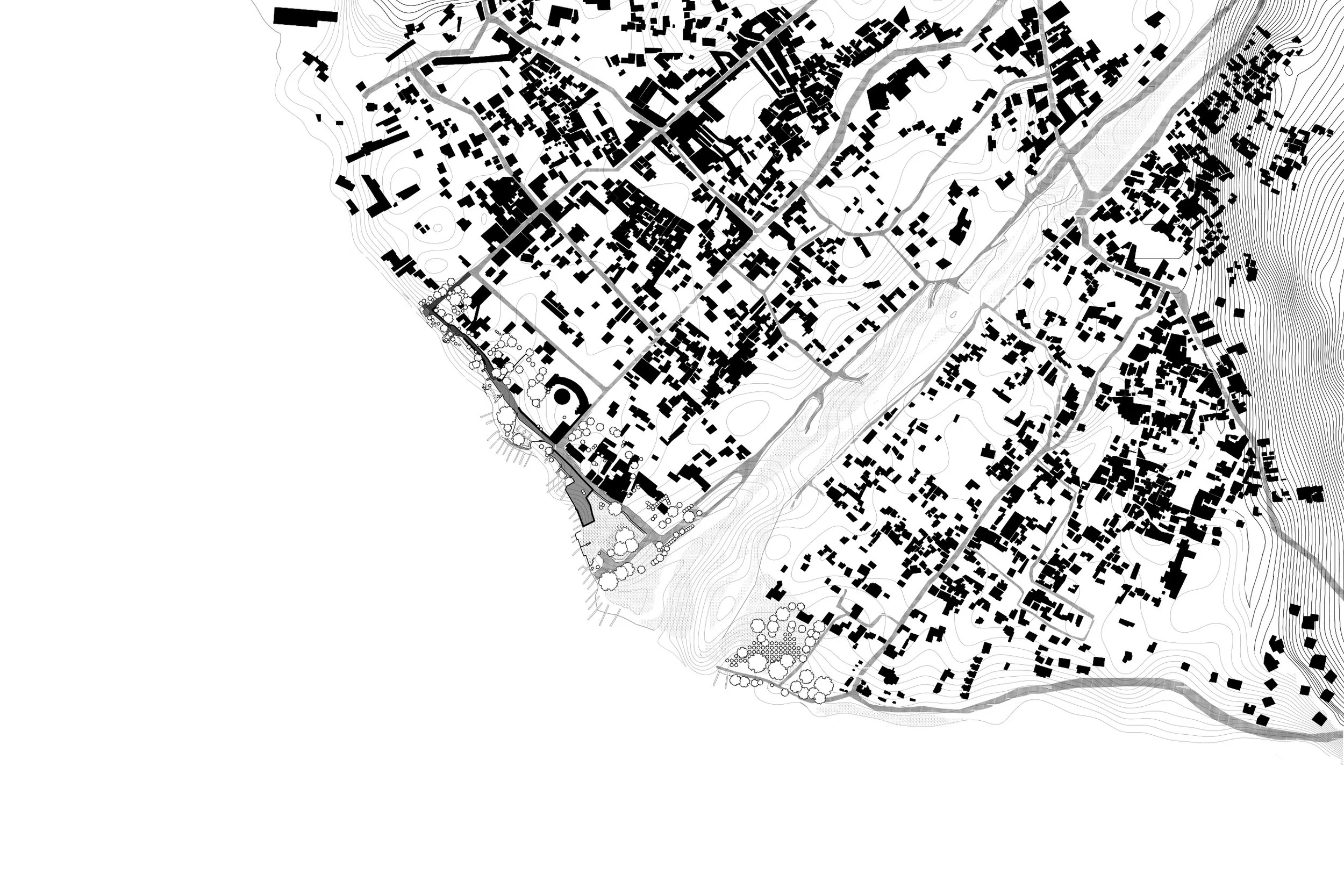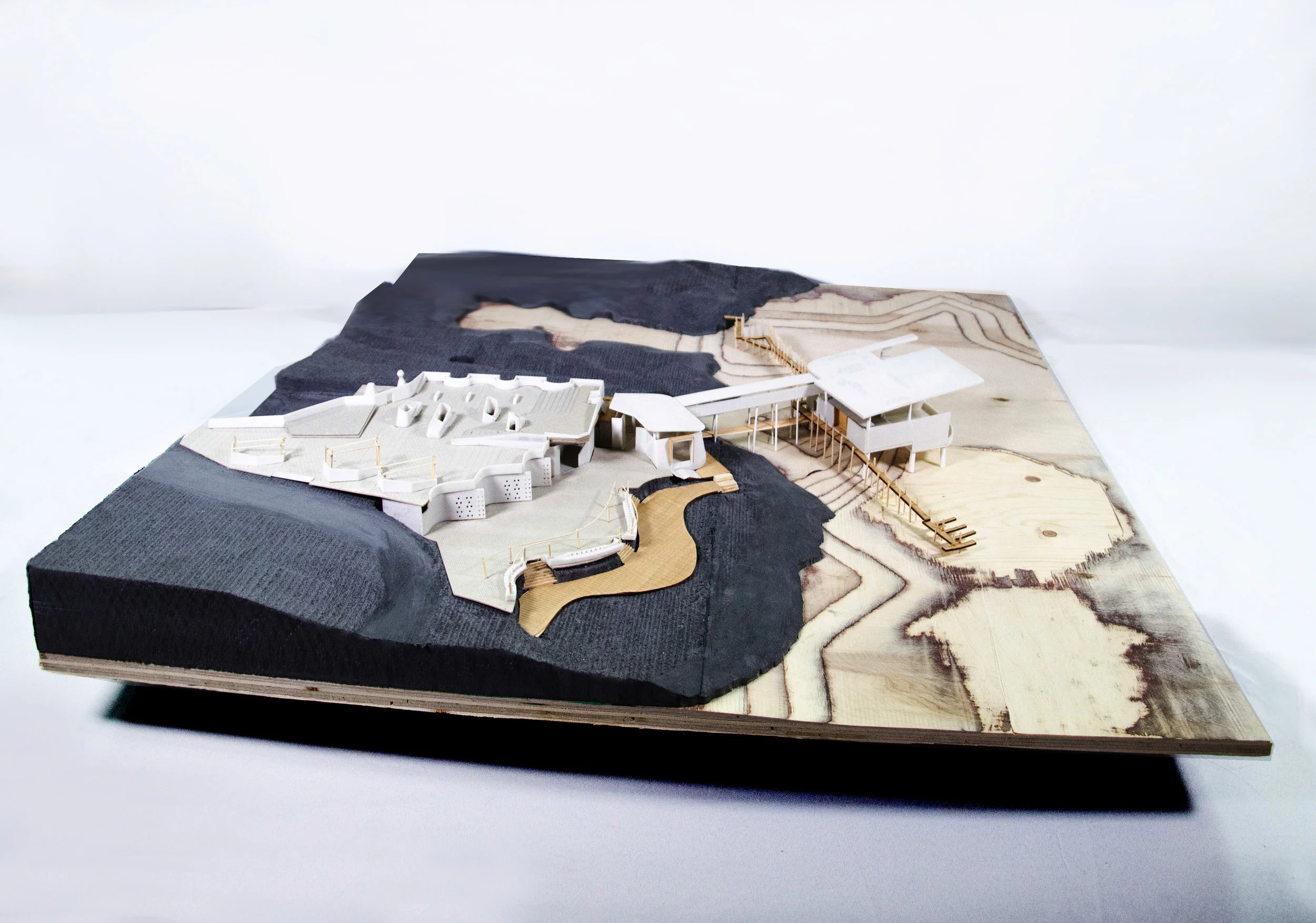







An ongoing creative process
Academic Project
Architecture Design Thesis
The Material Recovery Plant is both a collector of recycling material from the basin, as well as having the capability of involving the community in the process of caring for the Lake. Located in Lake Atitlan, one of the most important bodies of water in the Country of Guatemala, it is characterized by its clear waters, volcanic landscapes, and cultural importance to ancient and modern cultures, being the main source of livelihood of many locals. Paradoxically it is however, imminent to become toxic due to ongoing contamination and lack of clarity in acknowledging the problem, this current imperceptive attitude towards the lake is rooted in the deceiving yet astonishing views of a beautiful site hiding a much more urgent reality. The spaces are articulated with the aim to reposition the relation between the inhabitants and the lake.
This thesis project broadly inquires on the concept of perception in relation to our environment through the experience of Architecture. Specifically encouraging different modes of engagement between the individual and place. The work focuses mainly on three different types of perception studies, these are:
1. Distant perception, through the study of tourism
2. Local Perception, through the myths and stories of the place
3. Self perception, through phenomenology and the senses
Academic Project
Architecture Design Thesis
The Material Recovery Plant is both a collector of recycling material from the basin, as well as having the capability of involving the community in the process of caring for the Lake. Located in Lake Atitlan, one of the most important bodies of water in the Country of Guatemala, it is characterized by its clear waters, volcanic landscapes, and cultural importance to ancient and modern cultures, being the main source of livelihood of many locals. Paradoxically it is however, imminent to become toxic due to ongoing contamination and lack of clarity in acknowledging the problem, this current imperceptive attitude towards the lake is rooted in the deceiving yet astonishing views of a beautiful site hiding a much more urgent reality. The spaces are articulated with the aim to reposition the relation between the inhabitants and the lake.
This thesis project broadly inquires on the concept of perception in relation to our environment through the experience of Architecture. Specifically encouraging different modes of engagement between the individual and place. The work focuses mainly on three different types of perception studies, these are:
1. Distant perception, through the study of tourism
2. Local Perception, through the myths and stories of the place
3. Self perception, through phenomenology and the senses